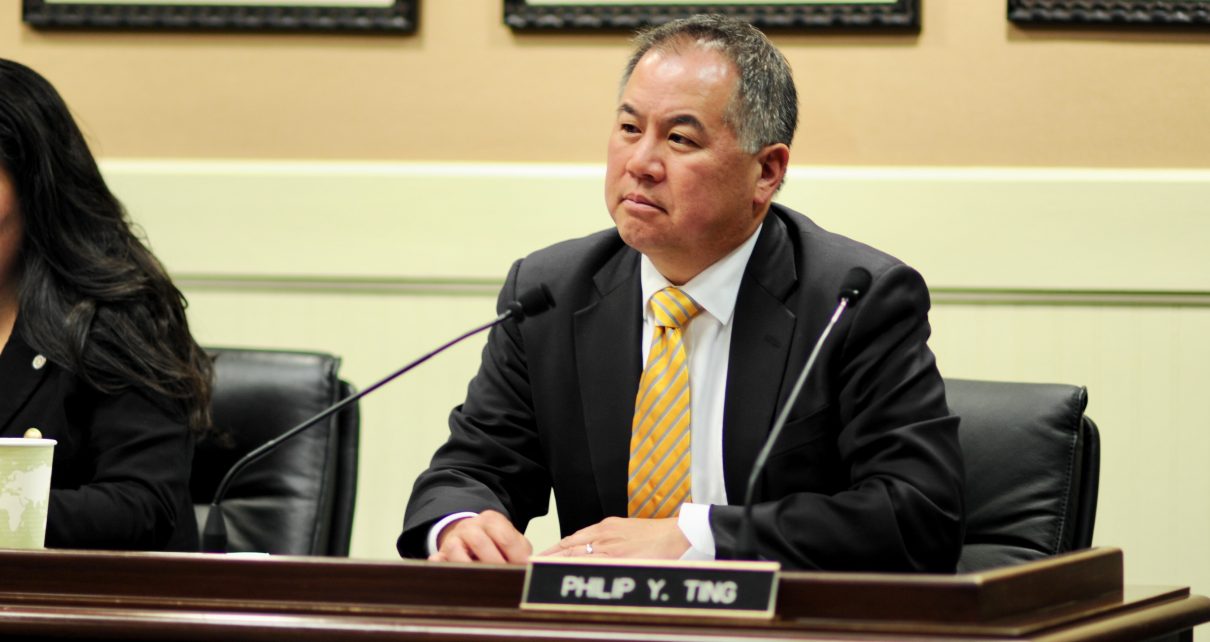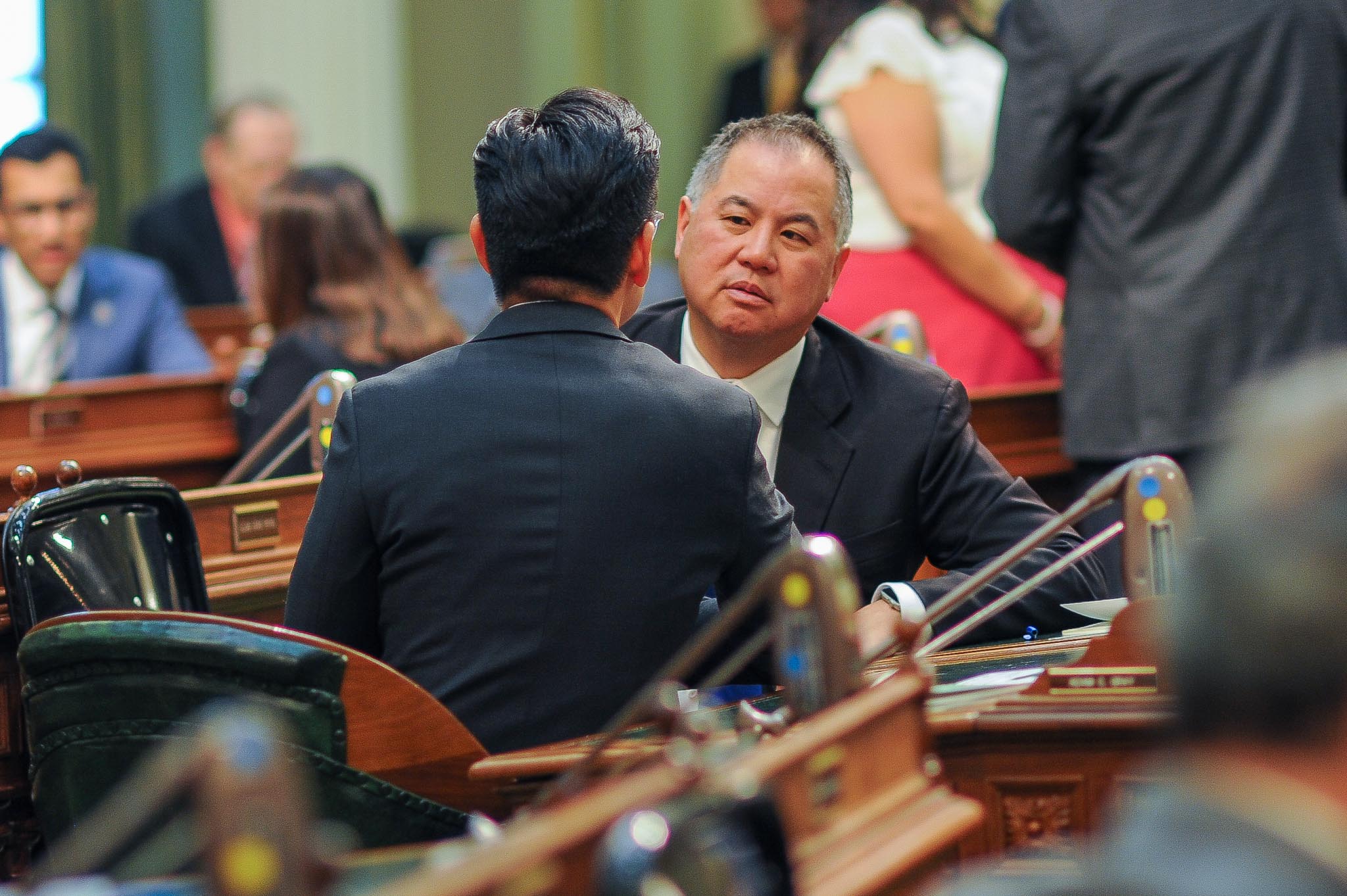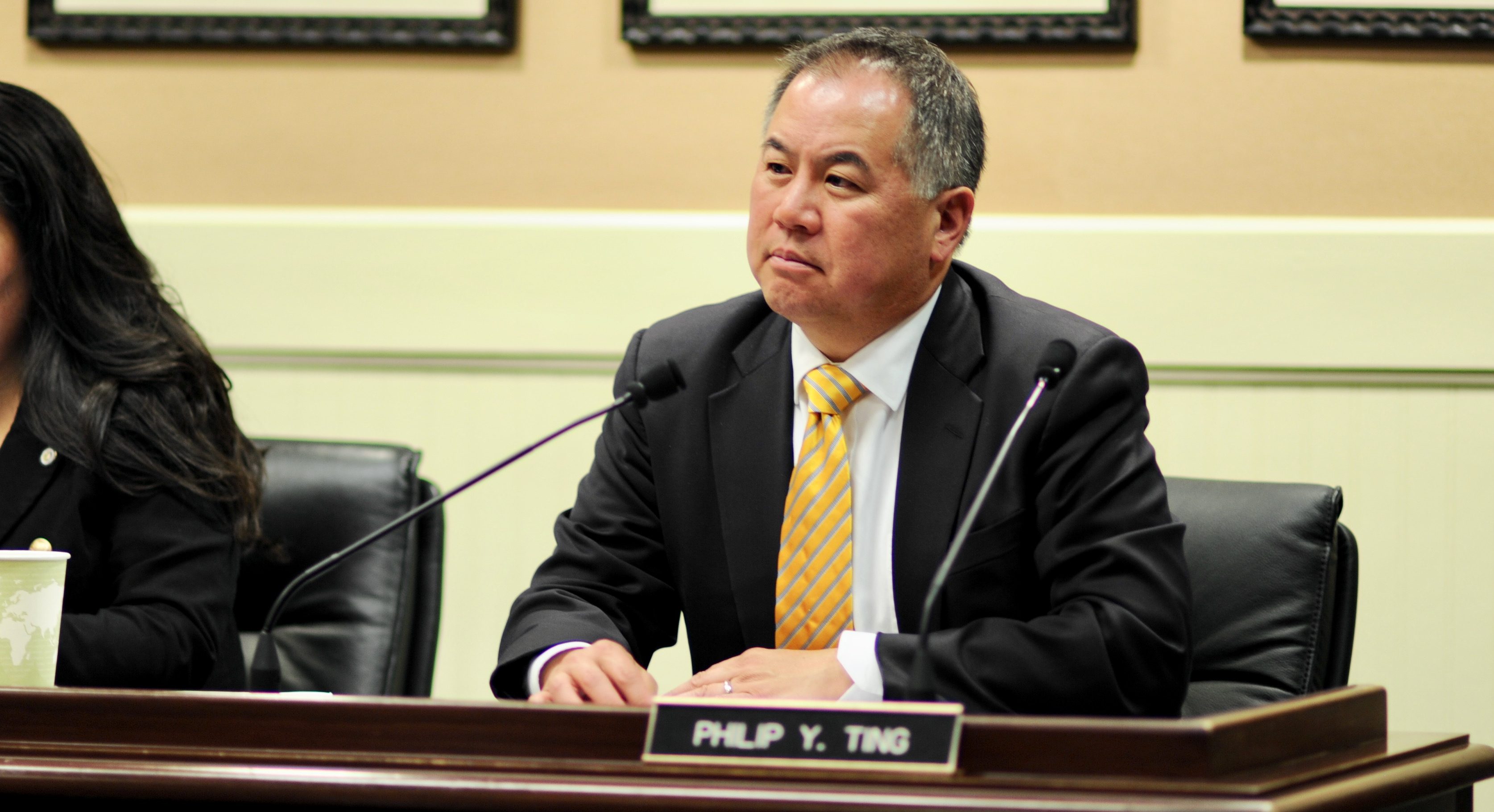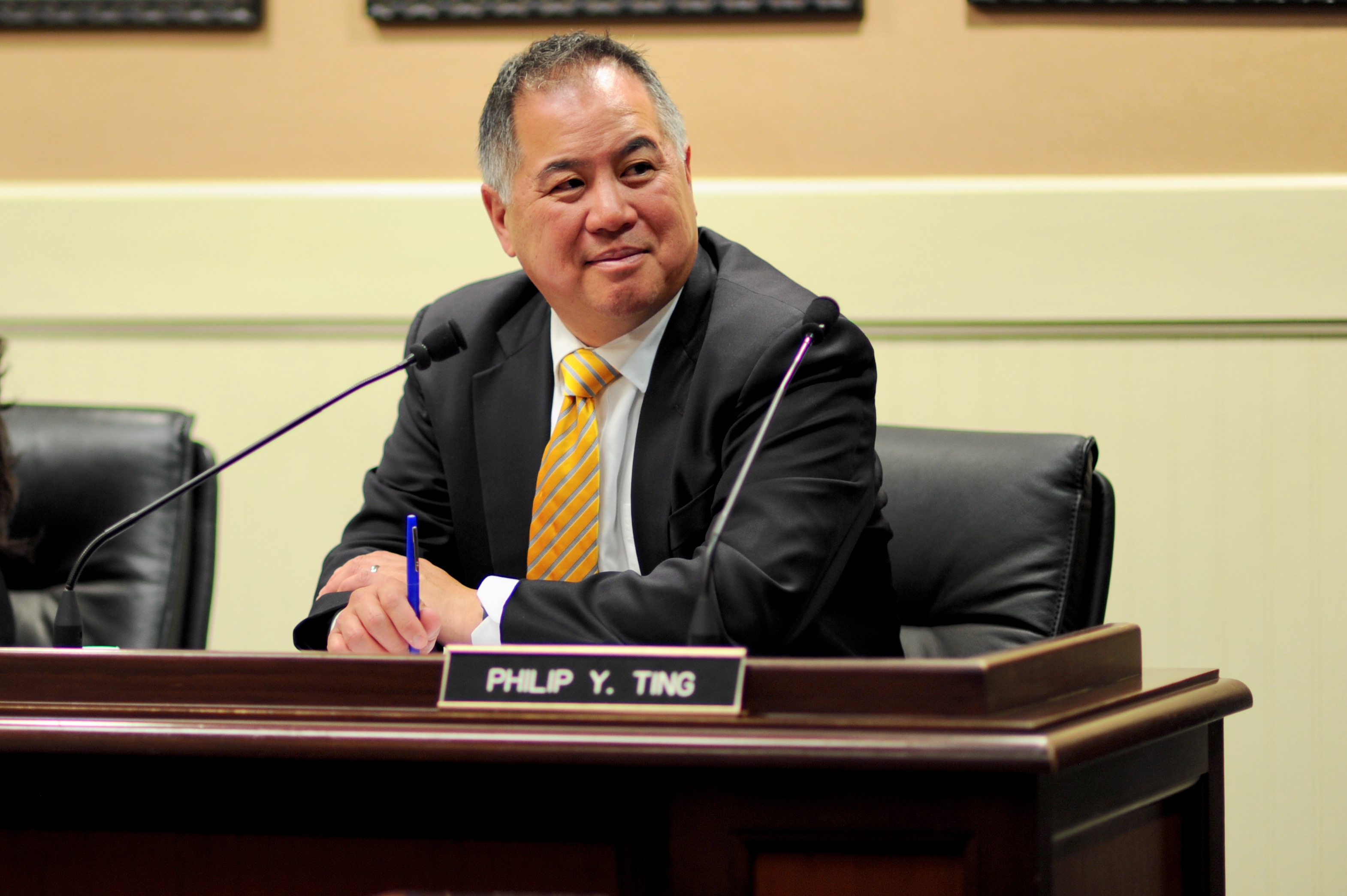
Assemblyman Philip Y. Ting. (Photo: Kevin Sanders for California Globe)
Scrutiny Over ‘Revenge’ Bill to End California’s Legacy and Donor-Based College Admissions
If race can’t be a factor for admissions anymore, neither can wealth or donor preference
By Evan Symon, September 4, 2024 5:51 pm
A bill that would ban both legacy and donor preferred admissions at public and private colleges in California received continued scrutiny this week as Governor Gavin Newsom mulls over his decision on the bill.
Assembly Bill 1780, authored by Assemblyman Phil Ting (D-San Francisco), would prohibit an independent institution of higher education from providing a legacy preference or donor preference in admissions to an applicant as part of the regular or early action admissions process. The bill would make a violation of the prohibition subject to a civil penalty equal to the amount the independent institution of higher education receives in the year before the violation occurred pursuant to the Cal Grant Program or the Cal Grant Reform Act. AB 1780 would also require the civil penalty to be assessed and recovered by the Department of Justice and deposited into the Cal Grant Account, which the bill would establish in the State Treasury.
In addition, the bill would require funds in the account, upon appropriation by the Legislature, to be available for purposes of funding the Cal Grant Program or the Cal Grant Reform Act, as well as require the department to post the names of the independent institutions of higher education that violate the prohibition on its internet website. Finally, AB 1780 would require, on or before June 30, 2026, and annually thereafter, an independent institution of higher education to report specified information about admitted students to the Legislature.
GOP opposition against the bill has been fierce all year. Specifically, many have pointed out that the bill would only worsen diversity levels in colleges, and that legacy and donor admissions are needed to help fund schools, especially those facing budget issues. As legacy students pay full price and donors bring in large sums of money or add new buildings or needed amenities on campus, banning them would hurt universities across the state. Even though it squeaked by in the Senate with a 26-5 vote with 9 abstentions last week, opponents continued to blast the bill.
The latest concerns this week have to do with many now labeling it a “revenge” bill. Throughout the year, Ting has noted that the University of California system and all public universities in California do not allow legacy admissions anymore, as many private colleges do. Shakeups caused by the Varsity Blues admissions bribery scandal and last years Students for Fair Admissions v. Harvard Supreme Court case which virtually banned affirmative action in college admissions bumped up legacy and donor preferred admissions. Both incidents caused legacy and donor preferred admissions to grow. This included Stanford’s newest class coming in over 13% legacy and USC 14% legacy.
The revenge bill
It comes in as a “revenge” bill as Assemblyman Ting has specifically stated that if race can’t be a factor for admissions anymore, neither can wealth or how much people want to financially help the school.
“The bill is in response to last summer’s U.S. Supreme Court ruling that bans race considerations in the college admissions process,” explained Ting’s office earlier this year. If race can’t be a factor, Ting and other supporters believe wealth or relationships shouldn’t be considered either.
“Equal opportunity is the name of the game here. Everyone should be considered fairly. Hard work, good grades and a well-rounded background should earn you a spot in the incoming class, not the size of the check your family can write or who you’re related to. If we value diversity in higher education, we must level the playing field. That means making the college application process more fair and equitable.”
However, more questions this week have brought up issues that Ting hasn’t considered.
“Without legacy admissions, donors will not be giving as much money. So that means scholarships and other academic needs goes down,” college admissions specialist Dorothy Wagner told the Globe on Wednesday. “Where exactly does that money come from then?
“These donations that lead to scholarships are why so many diverse students can afford these schools in the first place. With fewer scholarships, more students will either not be able to afford to go there or are going to be saddled with major debts because of it.
“And, like I said before, this is just closing down one avenue for these students. Varisty Blues ended the sports scholarship work around. AB 1780 will end the legacy workaround. But there are still so many out there. Ting talks about leveling the playing field by removing legacy donations, but he is just going to make it worse.
“Newsom will still likely sign it, but all of these factors will make it not as nearly as strong as they think it will be.”
Newsom is set to either sign or veto the bill by the end of the month.
- San Francisco Cruise Robotaxi Folds Following $10 Billion In Losses - December 11, 2024
- New Information Shows UnitedHealthcare CEO’s Assassin Has California Ties - December 10, 2024
- Boeing To Cut 536 Jobs From California Following Several Years Of Major Incidents, Losses - December 10, 2024





Appreciated this follow-up article. Sure enough, this gem from Asm Phil Ting makes everything worse.
Unfortunately in this state we’ve learned over time that if we simply apply the maxim “everything Dem politicians touch turns to %$#@,” and/or if a bill has one of the Usual Suspects such as Asm Ting attached to it, we don’t have to spend too much time poring over it and figuring out if it’s a good bill or a bad bill.
Contact Gov Newsom if you’re so inclined, urging a veto. AB 1780.
https://www.gov.ca.gov/contact/
Americans are the most generous people in the world. Giving to your college or university should be encouraged, not discouraged. Yet this bill will defund colleges when costs are already astronomically high. Legacy and donor money is the lifeblood of scholarships. Take it away and fewer students will be able to afford college, fewer professors and research will be funded, and fewer campuses will be improved.
“Good work” on your revenge bill Ting. Your making it worse.
As a wealthy Harvard grad who lives the high life in San Francisco, will this legislation mean that Democrat Assemblyman Phil Ting’s two daughters and other family members won’t be able to rely on Ting’s wealth and past connections to get them into Harvard, Stanford or other top universities? No doubt generous CCP payoffs will allow them to buy their way in though?
(https://www.philting.com/)
No kidding.
I am opposed to AB 1780 for the same reason I opposed the Supreme Court’s decision on the Students for Fair Admissions lawsuit — I think private universities should have the choice to decide whom to admit. I don’t like politicians telling universities wish speakers they have to invite, I don’t like government telling universities how to teach African American Studies, I don’t like courts telling universities how to factor race in admissions, and I don’t like state legislatures telling private universities how to recognize alums and donors. I am broadly in favor of giving private universities academic freedom and independence when possible. Private universities should be able to figure out whom to admit and how to support themselves because they don’t get taxpayer money way state schools do.